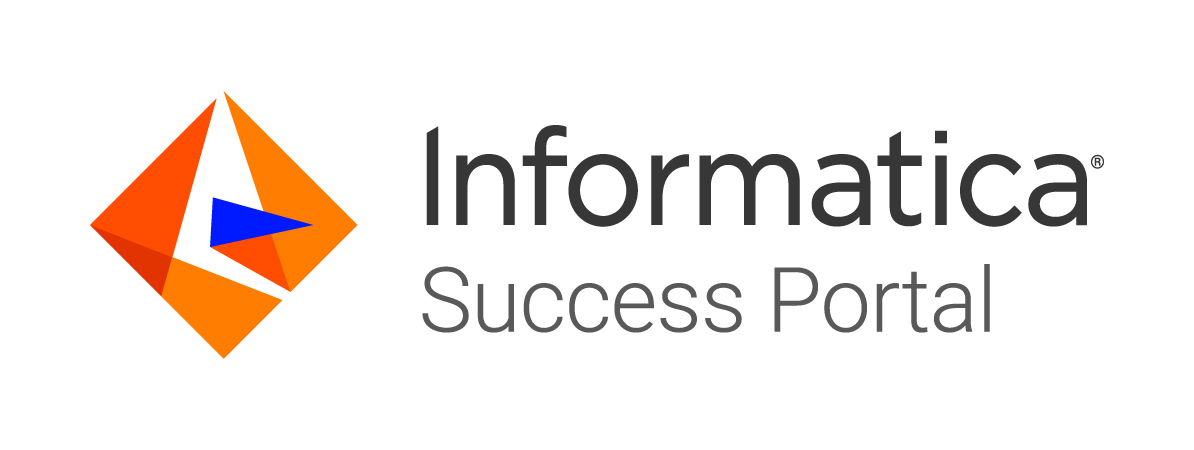-
Success
Manage your Success Plans and Engagements, gain key insights into your implementation journey, and collaborate with your CSMsSuccessAccelerate your Purchase to Value engaging with Informatica Architects for Customer SuccessAll your Engagements at one place
-
Communities
A collaborative platform to connect and grow with like-minded Informaticans across the globeCommunitiesConnect and collaborate with Informatica experts and championsHave a question? Start a Discussion and get immediate answers you are looking forCustomer-organized groups that meet online and in-person. Join today to network, share ideas, and get tips on how to get the most out of Informatica
-
Knowledge Center
Troubleshooting documents, product guides, how to videos, best practices, and moreKnowledge CenterOne-stop self-service portal for solutions, FAQs, Whitepapers, How Tos, Videos, and moreVideo channel for step-by-step instructions to use our products, best practices, troubleshooting tips, and much moreInformation library of the latest product documentsBest practices and use cases from the Implementation team
-
Learn
Rich resources to help you leverage full capabilities of our productsLearnRole-based training programs for the best ROIGet certified on Informatica products. Free, Foundation, or ProfessionalFree and unlimited modules based on your expertise level and journeySelf-guided, intuitive experience platform for outcome-focused product capabilities and use cases
-
Resources
Library of content to help you leverage the best of Informatica productsResourcesMost popular webinars on product architecture, best practices, and moreProduct Availability Matrix statements of Informatica productsMonthly support newsletterInformatica Support Guide and Statements, Quick Start Guides, and Cloud Product Description ScheduleEnd of Life statements of Informatica products
- Velocity
- Strategy
-
Solutions
-
Stages
Following a rigorous methodology is key to delivering customer satisfaction and expanding analytics use cases across the business.

-
More
-
Success
Manage your Success Plans and Engagements, gain key insights into your implementation journey, and collaborate with your CSMsAccelerate your Purchase to Value engaging with Informatica Architects for Customer SuccessAll your Engagements at one place
-
Communities
A collaborative platform to connect and grow with like-minded Informaticans across the globeConnect and collaborate with Informatica experts and championsHave a question? Start a Discussion and get immediate answers you are looking forCustomer-organized groups that meet online and in-person. Join today to network, share ideas, and get tips on how to get the most out of Informatica
-
Knowledge Center
Troubleshooting documents, product guides, how to videos, best practices, and moreOne-stop self-service portal for solutions, FAQs, Whitepapers, How Tos, Videos, and moreVideo channel for step-by-step instructions to use our products, best practices, troubleshooting tips, and much moreInformation library of the latest product documentsBest practices and use cases from the Implementation team
-
Learn
Rich resources to help you leverage full capabilities of our productsRole-based training programs for the best ROIGet certified on Informatica products. Free, Foundation, or ProfessionalFree and unlimited modules based on your expertise level and journeySelf-guided, intuitive experience platform for outcome-focused product capabilities and use cases
-
Resources
Library of content to help you leverage the best of Informatica productsMost popular webinars on product architecture, best practices, and moreProduct Availability Matrix statements of Informatica productsMonthly support newsletterInformatica Support Guide and Statements, Quick Start Guides, and Cloud Product Description ScheduleEnd of Life statements of Informatica products
-
Success
Data Warehouse/Data Lake Administrator
Share On:
Cloud Data Warehouse & Data Lake
Cloud Data Warehouse & Data Lake
Last Updated Date Aug 18, 2022
|
A typical data integration solution involves more than a single target database. The Data Warehouse/Data Lake Administrator is responsible for implementing and maintaining stable, reliable and secure environments that ensure performance and up-time. The person in this role will coordinate many facets of the solution, including operational considerations of the data warehouse, data governance, security, job scheduling and submission, and resolution of production failures. This role is expected to work closely with the Data Architect to manage and monitor the on-going deployment and organizational needs.
Responsibilities
- Monitors and supports the Enterprise Data Warehouse/Data Lake environment.
- Manages the data extraction, transformation, movement, loading, cleansing and updating processes into the analytics storage environment.
- Applies and enforces Data Governance policies.
- Implements database security and may employ security using an authentication and authorization system such as Kerberos.
- Sets up and manages Infrastructure.
- Perform capacity planning of Informatica clusters.
- Good understanding of Big data technologies and environment; experienced in cluster performance tuning.
- Sets standards and procedures for the analytics storage environment.
- Implements technology improvements and monitors data size and data volumes to ensure capacity.
- Works to resolve technical issues.
- Researches and resolves data issues when applicable.
- Research should include usage of metadata management tools.
- Understand up and downstream data sources and consumers.
- Contributes to technical and system architectural planning.
- Reviews Data Warehouse dimensional model.
- Tests and implements new technical solutions.
Qualifications/Certifications
- Experience in supporting Data Warehouse and analytic environments.
- Familiarity with database, integration and presentation technology.
- Experience in developing and supporting real-time and batch-driven data movements.
- Experience in setting up and managing Informatica cluster and Infrastructure.
- Strong UNIX administration skills.
- Experience working with cluster distribution and optimization.
- Strong understanding of TCP/IP fundamentals.
- Sound working experience on cloud infrastructure solutions.
- Have solid working knowledge on Cloud automation deployment process using Orchestration management, such as Terraform, Ansible, Kubernetes.
- Solid understanding of relational database models and dimensional data models.
- Strategic planning and system analysis.
- Able to work effectively with both business and technical stakeholders.
- Works independently with minimal supervision.
- Understands corporate IT security policies.
- Understands applicable data governance policies (as it relates to providing access to data connections and services within the domain).
- Scripting experience (Python, Shell, Perl, PowerShell).
